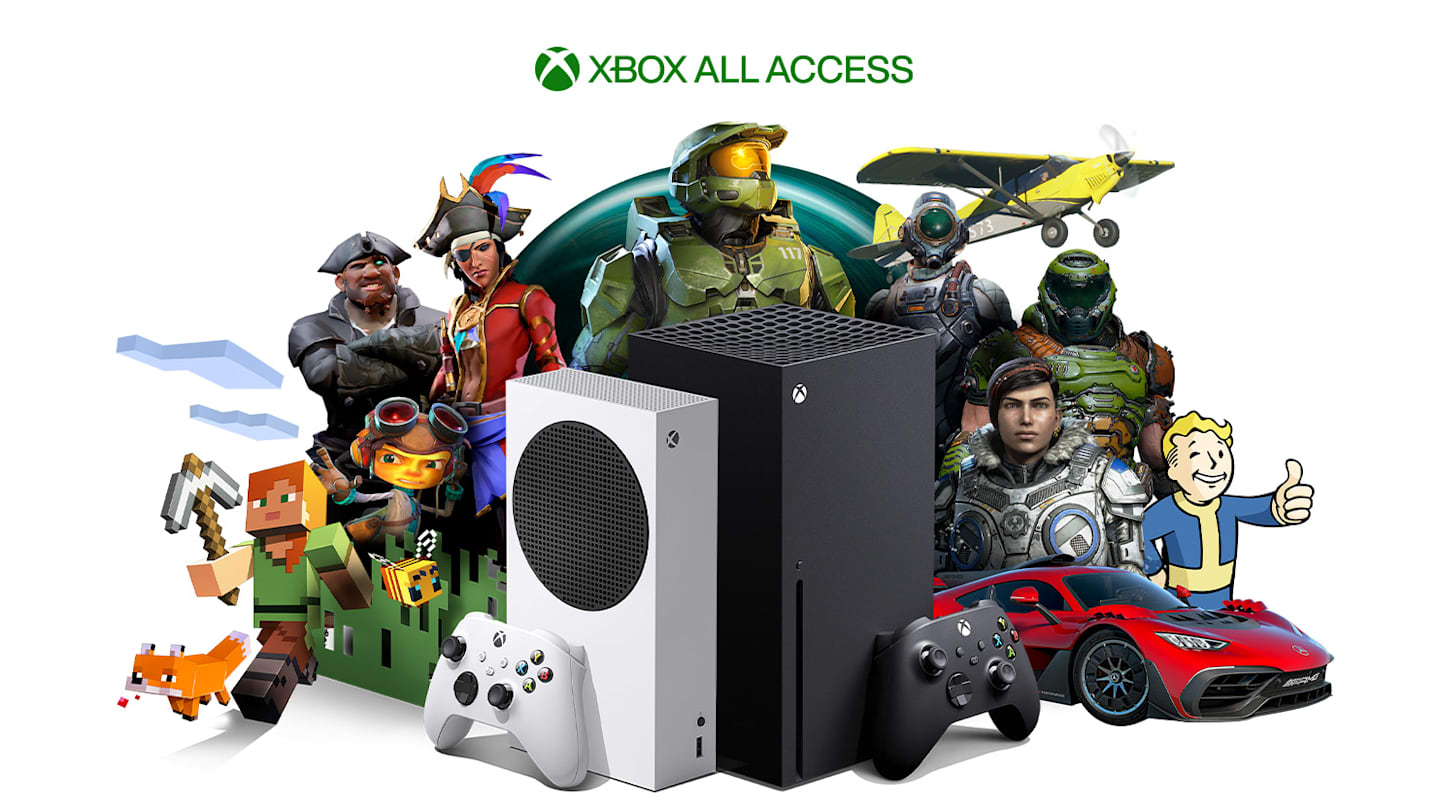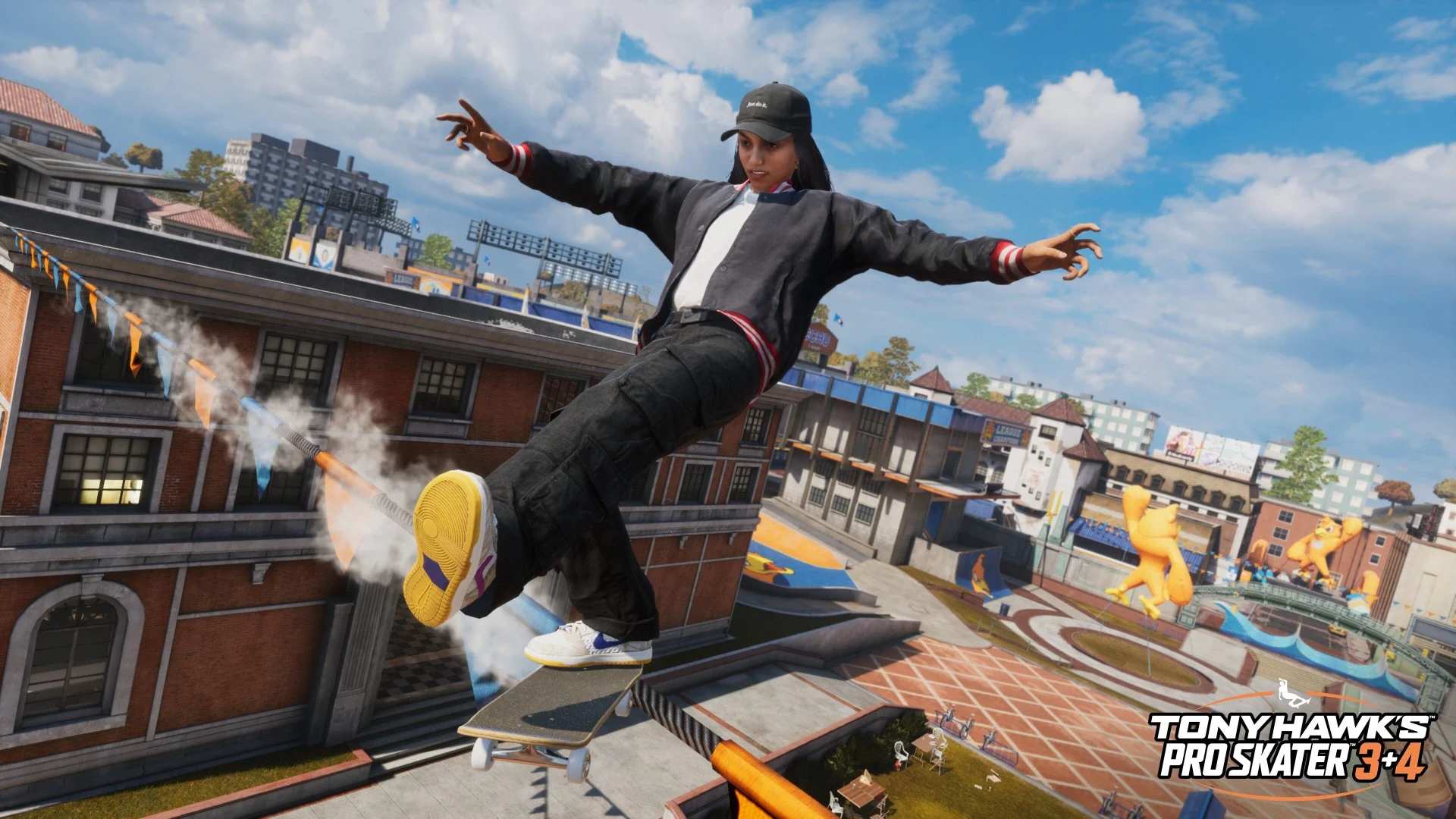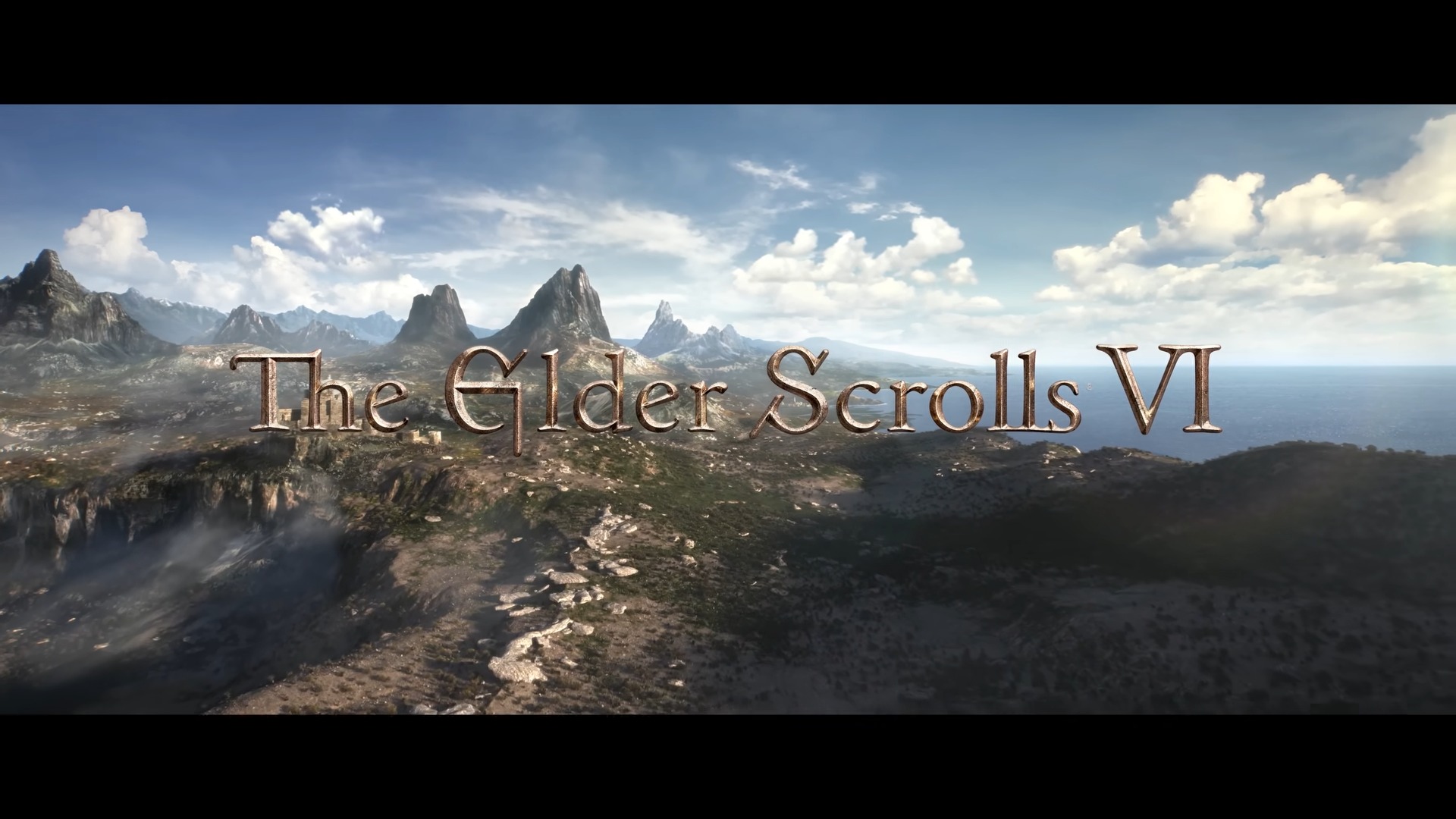
Initially, when the current console era started, I believed Microsoft was poised for a resurgence. Right before the unveiling of the Xbox Series X/S, Microsoft surprised everyone by acquiring Bethesda and Zenimax, a massive deal that significantly strengthened their first-party roster. They also promised that every new game from both Bethesda and Microsoft would be available on Xbox Game Pass on launch day. If you lean more towards casual gaming or if your consoles are mainly for family use, an Xbox Game Pass subscription along with an Xbox Series S was – or still is – one of the most attractive offers in the gaming world.
Over time, Game Pass started feeling like a Netflix-style subscription – not in the way it delivered content, but because, similar to Netflix, I was paying for it without getting much use out of it. Yes, new games were being added monthly, but they didn’t appeal to me and my Xbox usage dwindled accordingly. Then, Microsoft made a big move by acquiring Activision for billions, which in turn led to an increase in the Game Pass subscription fee that I hadn’t been utilizing fully.
Initially, during this current console era, I held the view that Sony and PlayStation had grown overly comfortable, and that the allure of Xbox Game Pass could significantly erode Sony’s market dominance. However, Microsoft’s Xbox One was a misstep, but the finest games from that generation were made accessible through Game Pass on the new Series console. I anticipated that the Xbox Series S and Game Pass would be too tempting for most gamers to resist. Unfortunately, my assumption proved incorrect.

Rather than sticking with their current strategy, Microsoft has thrust its gaming division into a free fall, and it’s evident that the management at Xbox is not up to the task. In an age where Sony seems to be consistently stumbling, even releasing a PS5 Pro before the PS5 has built a strong first-party library, the state of Xbox Game Studios is chaotic and disorganized.
As a dedicated gamer, I’ve always held Rare, once known as Rareware, close to my heart. This UK-based studio has been the dream-weaver for countless gamers across the globe, with timeless creations like Banjo-Kazooie, Conker’s Bad Fur Day, Donkey Kong Country, Viva Pinata, and many more that have left indelible marks on my childhood. This is a studio that has masterfully crafted memories that live on in the annals of gaming history.
Unfortunately, Rare seems to be going through a rough patch, leading to the cancellation of Everwild, a game that has been in development for over six long years since 2014, and even got a trailer in 2019. That’s nearly a decade of work, only to end up with a game we will never get to play.
This situation appears to be a result of managerial inefficiency, as suggested by some ex-employees from Xbox studios who have voiced dissatisfaction with the corporate hierarchy and supervision. Elsewhere, it seems that Xbox’s laissez-faire approach led to development schedules becoming delayed and prolonged. Microsoft’s The Initiative studio was established in 2018 and worked exclusively on Perfect Dark, collaborating with Crystal Dynamics and Certain Affinity. Fast forward to 2025, Perfect Dark is cancelled, along with the closure of The Initiative. After seven years, they have produced no tangible results.

In 2021, Sony debuted Concord, the inaugural production from Firewalk Studios that was established in 2018. The game ceased operation just two weeks later, and Firewalk Studios was subsequently shut down. This hasty decision seemed excessive. Despite Concord struggling to gain traction due to market saturation, it could have garnered a dedicated fanbase if it transitioned to Free-to-Play (F2P) and received regular updates. It showed promise, but Sony apparently didn’t see its potential or wasn’t prepared to invest further in development. However, the consequences of Concord’s launch extended beyond this, as well.
Initially, the launch was tough, but eventually, a refined version of the product was unveiled. Following this, Sony has adjusted its strategies and objectives, choosing to scrap numerous live-service games that were once anticipated. Games like Spider-Man Online, Live Service Twisted Metal, Live Service God of War, The Last of Us Online, and a Destiny spin-off have been dropped, which seems like a wise choice. It’s not always a surefire way to make profits by developing live service games based on popular franchises when gamers are already overwhelmed with numerous online options. Releasing too many such titles would only congest the market, and Sony seems to have learned this lesson the hard way during this console generation. However, despite these missteps, this approach appears more strategic compared to Microsoft’s repeated dismissals of talent.
In contrast to apprehension in the Western gaming sector, where signs of a potential industry collapse are evident (as indicated by recent layoffs), the Eastern gaming industry is flourishing. A combination of a weak Yen and robust game releases has companies such as Nintendo, Capcom, and Bandai Namco experiencing ongoing prosperity. Japan’s labor laws make it challenging to let employees go, leading these publishers to prioritize long-term growth over immediate profits. Although it may not be the main reason for their success, job security and minimal brain drain certainly contribute significantly to their continued thriving. Furthermore, publishers beyond Japan are also excelling; newcomers in the triple-A development arena like Game Science’s Black Myth: Wukong and Shift Up’s Stellar Blade are receiving international recognition.

Microsoft’s strategy of downsizing to save money temporarily is not exclusive, but due to its significant investments in studios over the past decade, the impact of these layoffs is more pronounced within the gaming industry. Amongst its Bethesda studios, Microsoft has shuttered Alpha Dog Games, sold Tango Gameworks after closing it, closed Arkane Austin, and merged Roundhouse Studios into ZeniMax Online. While Microsoft hasn’t yet made substantial cuts at its Activision and Blizzard studios, there have still been layoffs, and the updates for Warcraft Rumble have been postponed indefinitely. Even studios not directly owned by Microsoft are feeling the brunt, with Doom co-creator John Romero’s studio, Romero Games, laying off all its staff following the withdrawal of funding for their new FPS project by Microsoft.
Just a few weeks ago, Xbox and AMD unveiled their partnership for next-gen hardware, but recent developments have made it more apparent than ever that there’s little reason for enthusiasm. Regardless of whether Xbox is planning a handheld device like a PC or a branded desktop PC for the living room, it holds no allure for me. My lack of interest stems from my skepticism about the publisher delivering games that I find appealing.
Currently, Microsoft holds the rights to some iconic gaming franchises spanning decades. These include Crash Bandicoot, Spyro, StarCraft, Warcraft, Diablo, Fable, Conker, Age of Empires, Tony Hawk’s, Killer Instinct, Halo, Gears of War, Guitar Hero, Perfect Dark, The Elder Scrolls, Fallout, Doom, Forza, Wolfenstein – the list is extensive. In the next five years, it’s likely that several of these franchises will see new installments, considering a typical AAA game development cycle can take up to five years.

As a devoted fan, it’s not hard to imagine Microsoft, with its numerous studios and seemingly endless wealth, releasing new games across various franchises if they so desired. However, beyond the confirmed titles like Gears of War, Fable, and Tony Hawk’s, my expectations aren’t particularly high.
In the process of Microsoft’s purchase of Activision-Blizzard, it emerged from FTC leaks that The Elder Scrolls 6 will likely be released no sooner than 2026. This is particularly noteworthy since Todd Howard stated in 2023 that the game was “five years away,” making us currently (in 2025) well within that timeline. However, it’s important to note that while Bethesda’s team has completed development for Starfield with the September 2024 Shattered Space DLC, it’s worth mentioning that Starfield itself experienced two delays. These setbacks undoubtedly impacted the progress of The Elder Scrolls 6 development as well. Although it’s possible that work on TES6 has been ongoing simultaneously, it seems plausible that the team might not have been fully dedicated to the project given these circumstances. Furthermore, the extended timeframes for game development and the growing anticipation from fans only serve to heighten expectations.
It seems I must pose the question, for how long should we continue to pay for Xbox Game Pass, considering that many anticipated games never seem to launch? While it’s true that there are numerous offerings on the service beyond first-party titles, if you’re not deeply invested in the Xbox platform and have alternatives for gaming, there seems little justification for renewing Game Pass every year. If you’ve already experienced most of the games that pique your interest or could complete the remaining ones with a one-month subscription, it might be more cost-effective to go that route instead.

As a dedicated gamer, I’ve always been skeptical about the ethical stance of massive corporations like Xbox (Microsoft). However, it’s disheartening to witness their actions recently that seem detrimental to the entire gaming community – developers, players, and game creators alike. Despite their unprecedented profits, they appear to be neglecting those who have contributed significantly to their success.
I had high hopes for the Xbox Series generation, anticipating a resurgence of Microsoft’s dominance in the console market. I even dared to dream that the acquisition of Activision-Blizzard might bring about positive changes for the studios burdened with supporting Call of Duty. Alas, I was mistaken.
Now, I find myself grappling with the reality of a future where I can no longer wholeheartedly back Microsoft’s actions, which appear to be eroding the very foundation of our beloved gaming industry. Despite yearning for genuine competition in this space, it’s challenging to envision a scenario where I can continue supporting such practices.
Read More
- TON PREDICTION. TON cryptocurrency
- 2025 Crypto Wallets: Secure, Smart, and Surprisingly Simple!
- Bitcoin’s Bizarre Ballet: Hyper’s $20M Gamble & Why Your Grandma Will Buy BTC (Spoiler: She Won’t)
- Gold Rate Forecast
- The 10 Most Beautiful Women in the World for 2026, According to the Golden Ratio
- Nikki Glaser Explains Why She Cut ICE, Trump, and Brad Pitt Jokes From the Golden Globes
- TSMC & ASML: A Most Promising Turn of Events
- Russian Crypto Crime Scene: Garantex’s $34M Comeback & Cloak-and-Dagger Tactics
- Gold Bugs & Shiny Rocks: A Feller’s Guide
- A Spot of Trouble in the Markets?
2025-07-04 15:47